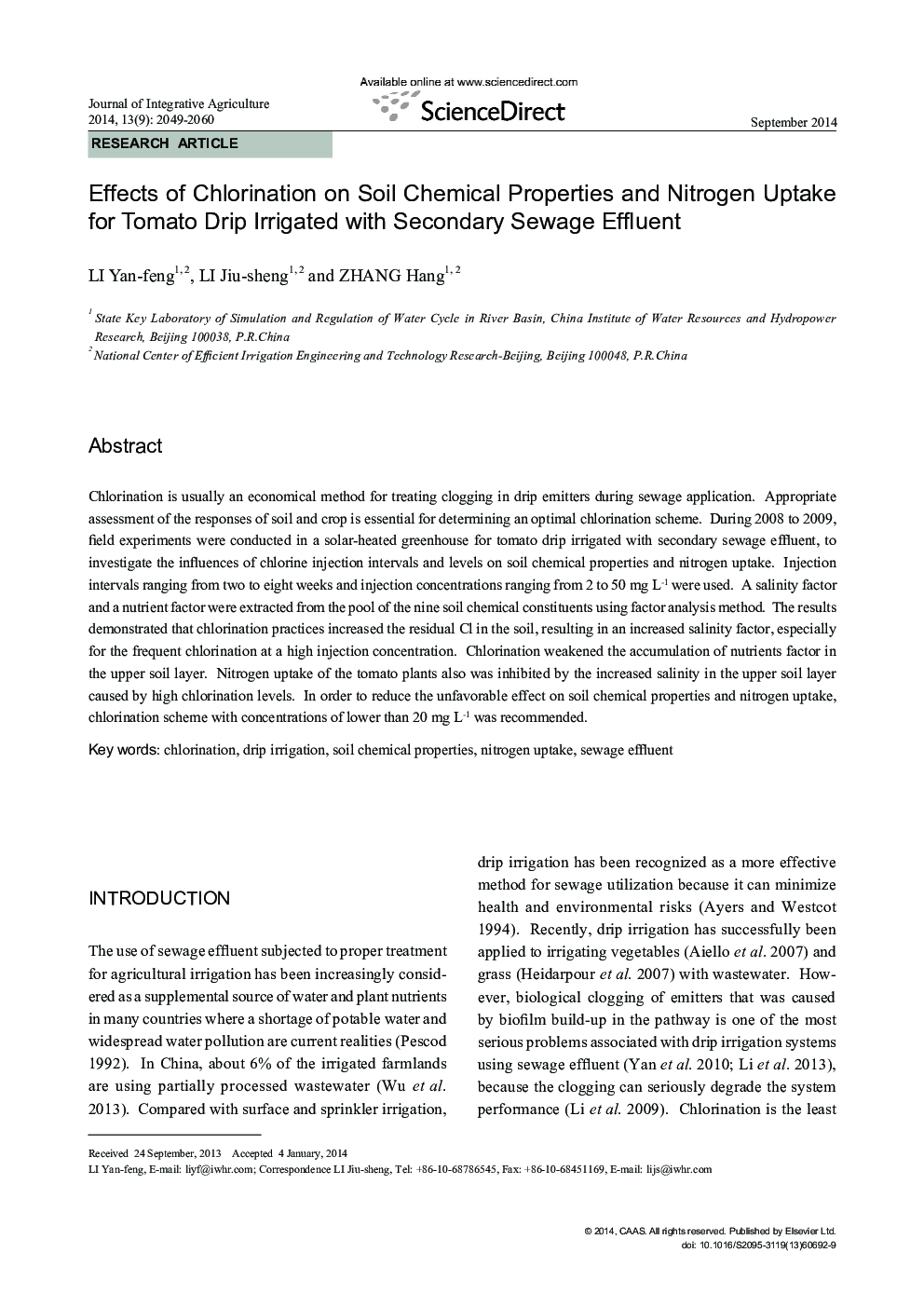| کد مقاله | کد نشریه | سال انتشار | مقاله انگلیسی | نسخه تمام متن |
|---|---|---|---|---|
| 4494348 | 1318709 | 2014 | 12 صفحه PDF | دانلود رایگان |
Chlorination is usually an economical method for treating clogging in drip emitters during sewage application. Appropriate assessment of the responses of soil and crop is essential for determining an optimal chlorination scheme. During 2008 to 2009, field experiments were conducted in a solar-heated greenhouse for tomato drip irrigated with secondary sewage effluent, to investigate the influences of chlorine injection intervals and levels on soil chemical properties and nitrogen uptake. Injection intervals ranging from two to eight weeks and injection concentrations ranging from 2 to 50 mg L−1 were used. A salinity factor and a nutrient factor were extracted from the pool of the nine soil chemical constituents using factor analysis method. The results demonstrated that chlorination practices increased the residual Cl in the soil, resulting in an increased salinity factor, especially for the frequent chlorination at a high injection concentration. Chlorination weakened the accumulation of nutrients factor in the upper soil layer. Nitrogen uptake of the tomato plants also was inhibited by the increased salinity in the upper soil layer caused by high chlorination levels. In order to reduce the unfavorable effect on soil chemical properties and nitrogen uptake, chlorination scheme with concentrations of lower than 20 mg L−1 was recommended.
Journal: Journal of Integrative Agriculture - Volume 13, Issue 9, September 2014, Pages 2049-2060
